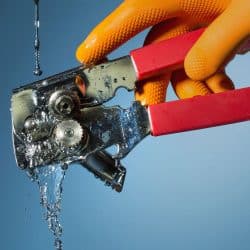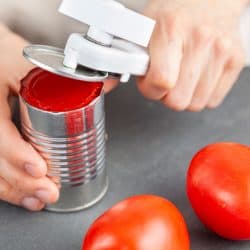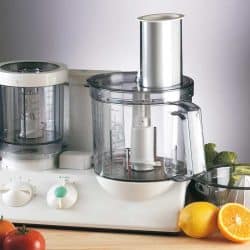From soup to nuts, an effective can opener is a mandatory kitchen gadget. But how long can you expect one to last? We've scoured through the research and have some surprising answers for you!
The lifespan of the average can opener, whether manual or electric, is approximately three years. However, if well-constructed and properly maintained, many do last much longer. Durability also depends on other circumstances, such as frequency of use and exposure to water.
So, what makes can openers wear out? Can they be sharpened? How do you keep a can opener from rusting? Continue reading for tips on keeping your can opener in the best shape possible!
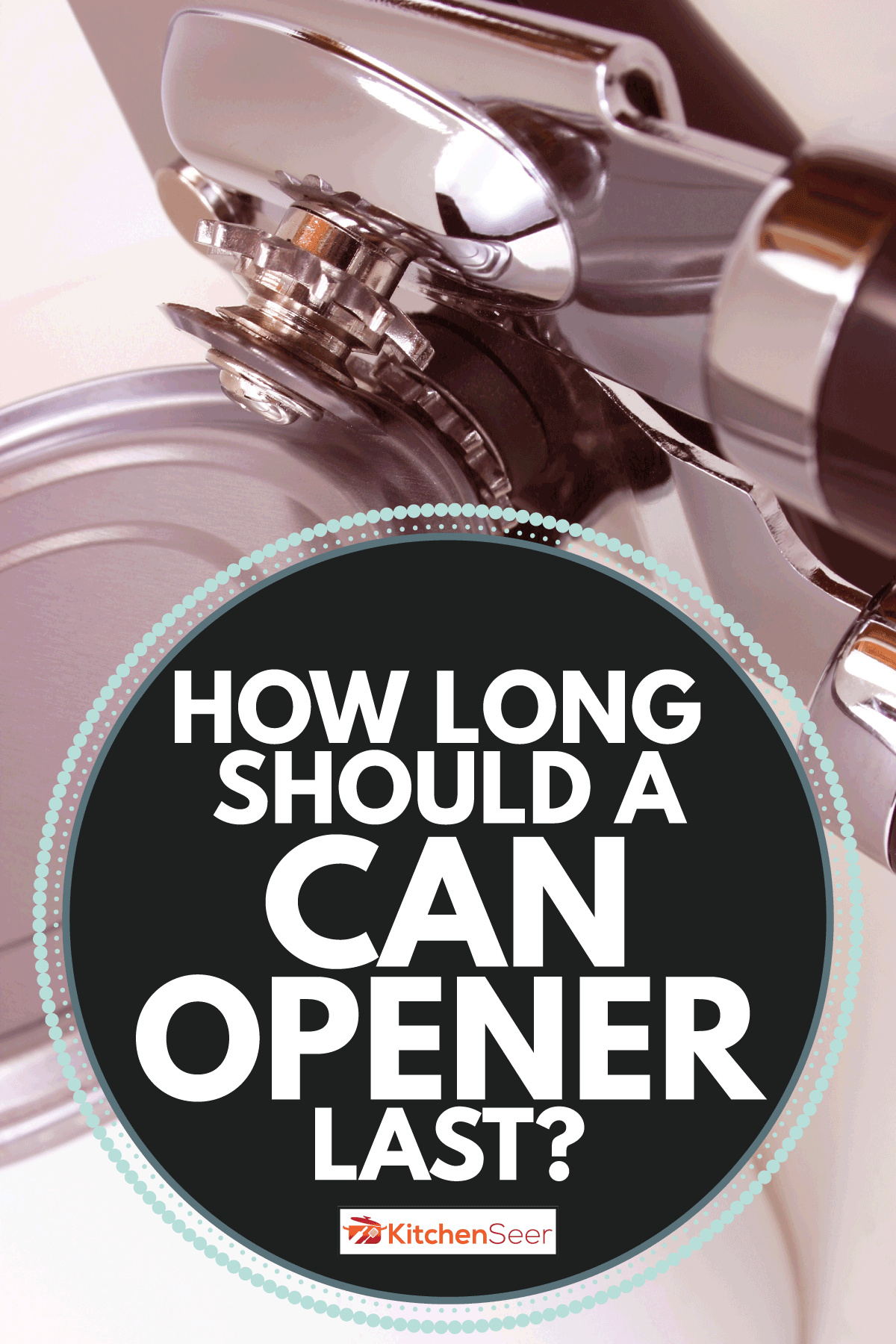
What shortens a can opener's lifespan?
Several factors can be responsible for your can openers wearing out faster. Let's take a look at the major culprits!
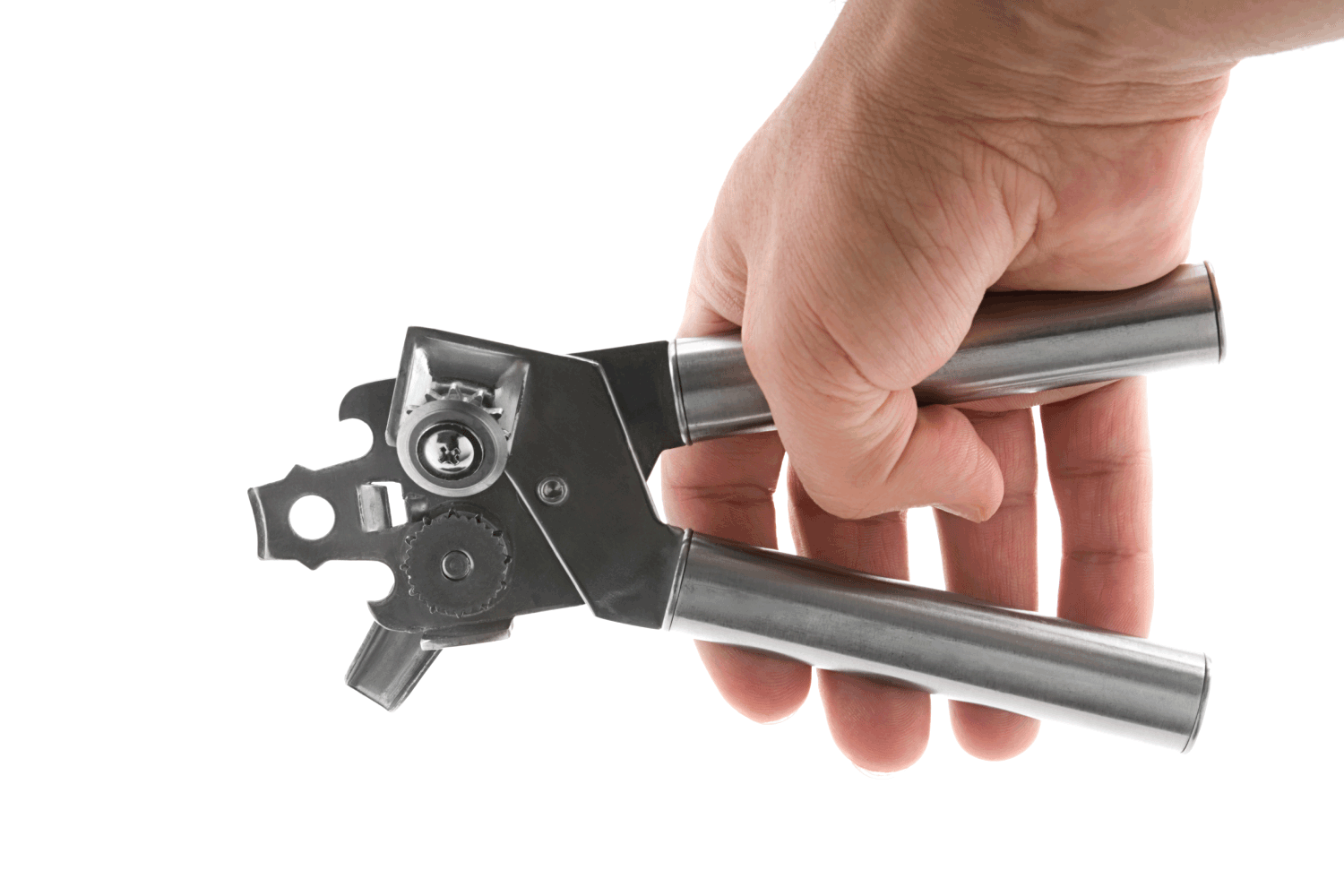
Poor construction
Generally speaking, the more flimsy a utensil feels, the less time it will last before breaking. Manual openers should have solid, strong grips and handles. Electric versions need to be able to support the weight of a can without tipping over. Invest in higher quality brands whenever possible to prolong lifespans.
Moisture exposure
It's important to keep your can openers clean. However, they must be properly dried before being returned to the drawer. If water is allowed to remain pooled in the gears, you will eventually get a rusty mess. Look for rust-resistant wheels and gears in both manual and electric models.
Lack of maintenance
Like most gadgets, can openers require regular maintenance to last. For example, some electric models require regular blade replacements. Inner workings must be cleaned often to prevent food or rust buildup. Gears also dull over time and may break with continued extensive use.
Improper use
Always remember to use your appliances as directed. Improper use often shortens durability. For example, smaller-sized manual models should not be used to cut large cans. The force of trying will often break them. Allowing an electric opener to overheat causes motor burnouts.
Do you need to clean a can opener?
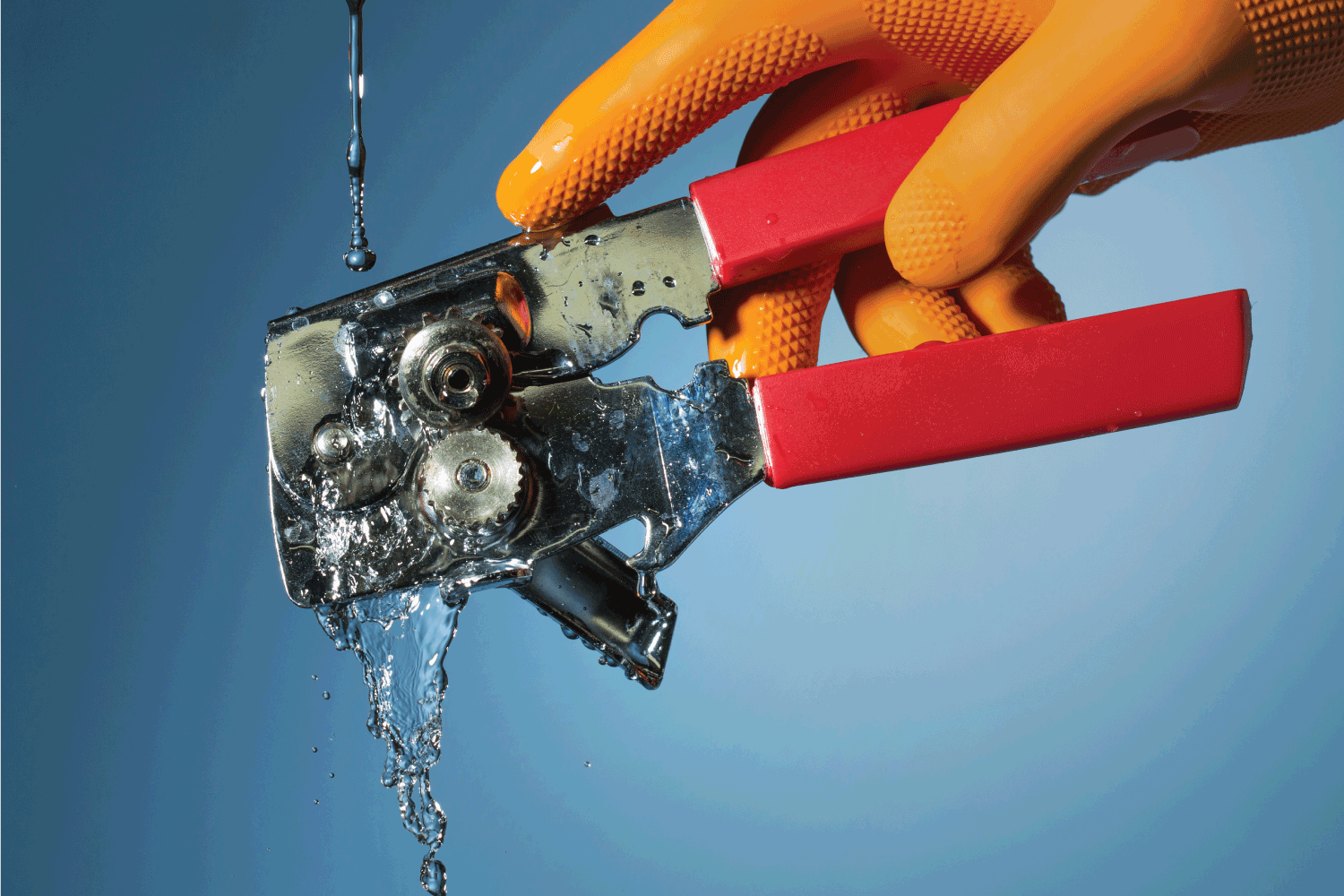
No matter what type of can opener you own, it needs regular cleaning. Ideally, this should be done after each use if food or liquid touches the blades. Old food accumulation not only makes the device unhygienic to use but also leads to corrosion.
Here is a great method of sanitizing your can opener:
- Use a tall glass and submerge the gadget, gear-side at the bottom.
- Add white vinegar until all the working components are covered. Let sit for five minutes.
- Rinse the opener with water, then scrub the gears thoroughly with a toothbrush.
- Rinse again and add dish soap to the brush. Scrub a second time.
- Splash with water. Dry completely, paying special attention to the gears. A hairdryer does a wonderful job!
This soaking approach also works for electric models with removable parts. If you cannot remove all the workings, you can simply use the vinegar and toothbrush method for the entire cleaning. Remember to thoroughly dry everything before reassembly to avoid rust.
Should I put a can opener in the dishwasher?
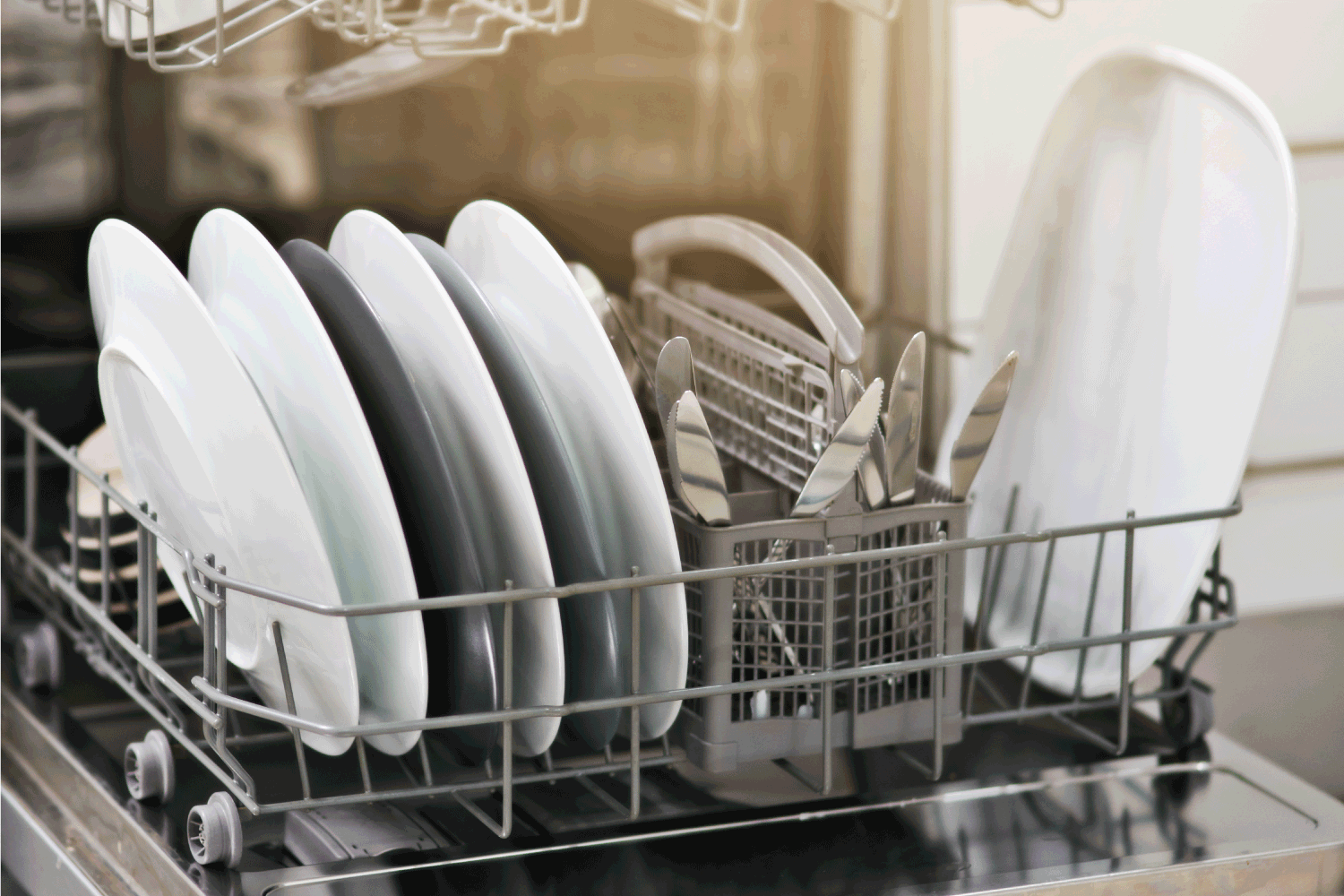
Can openers should never be run through the dishwasher unless your specific model is dishwasher-safe. Most brands are not compatible with dishwasher cleaning. This is because the combination of hot water and the drying process encourages rusting. The water cannot fully evaporate in that environment.
So, definitely avoid the dishwasher unless the care sheet tells you that it's alright. However, if you're interested in a dishwasher-safe model, we offer a suggestion below.
Click here to see 3-in-1 Stainless Steel Manual Can Opener on Amazon.
Can you sharpen a can opener?
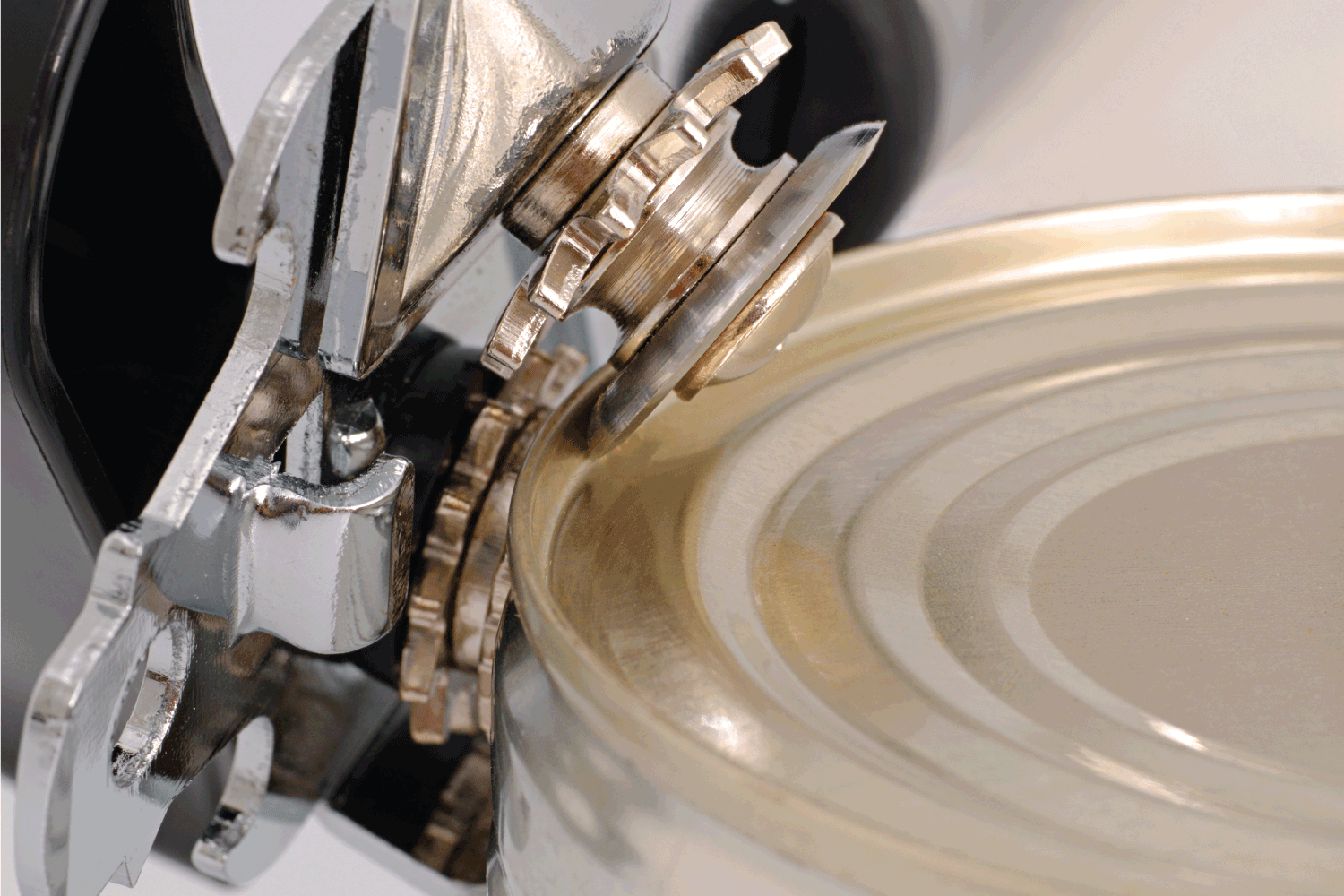
If your can opener begins to struggle to penetrate the lid, is blade most likely needs sharpening. This can be done with most models, whether manual or electric. However, some electric openers recommend simply replacing the blades. Check your owner's manual for specific instructions first.
Let's walk through the steps of sharpening up those blades:
- First, follow the above directions for cleaning your can opener.
- Tear off a long strip of aluminum foil. Fold it in half once or twice to increase the thickness.
- Run the strip through the gears until you reach five full rotations.
- Test the opener, repeating the steps a couple of times if not sharp enough.
Alternatively, you may follow these same steps using coarse grit sandpaper rather than aluminum foil. If these methods do not improve the efficacy of your can opener, it is most likely time to replace the blades- or the unit.
Remember to work carefully. Even dull blades can slice your fingers open if you're not attentive!
How to lubricate a can opener
Mineral oil
The most effective technique for lubricating your can opener involves food-grade mineral oil. After cleaning and drying the device, add a few drops or a couple of sprays to a paper towel. Then, wipe down the gears with it. That's it; you're done!
Not only is food-grade mineral oil cheap, but you can also use it for other kitchen items as well! It's perfect for cleaning and lubricating knives, cutting boards, and wooden spoons, too.
Click here to see 100% Food Grade Mineral Oil on Amazon.
Wax paper
If you're not interested in mineral oil, you may use wax paper for a similar effect. The process is identical to the aluminum foil cleaning method above. Tear off a strip, fold a few times, then run it through the gears to lubricate them. The best part is that if you like to bake, you probably already have this item in your cabinet!
Click here to see Cut-Rite Wax Paper on Amazon.
How do you keep a can opener from rusting?
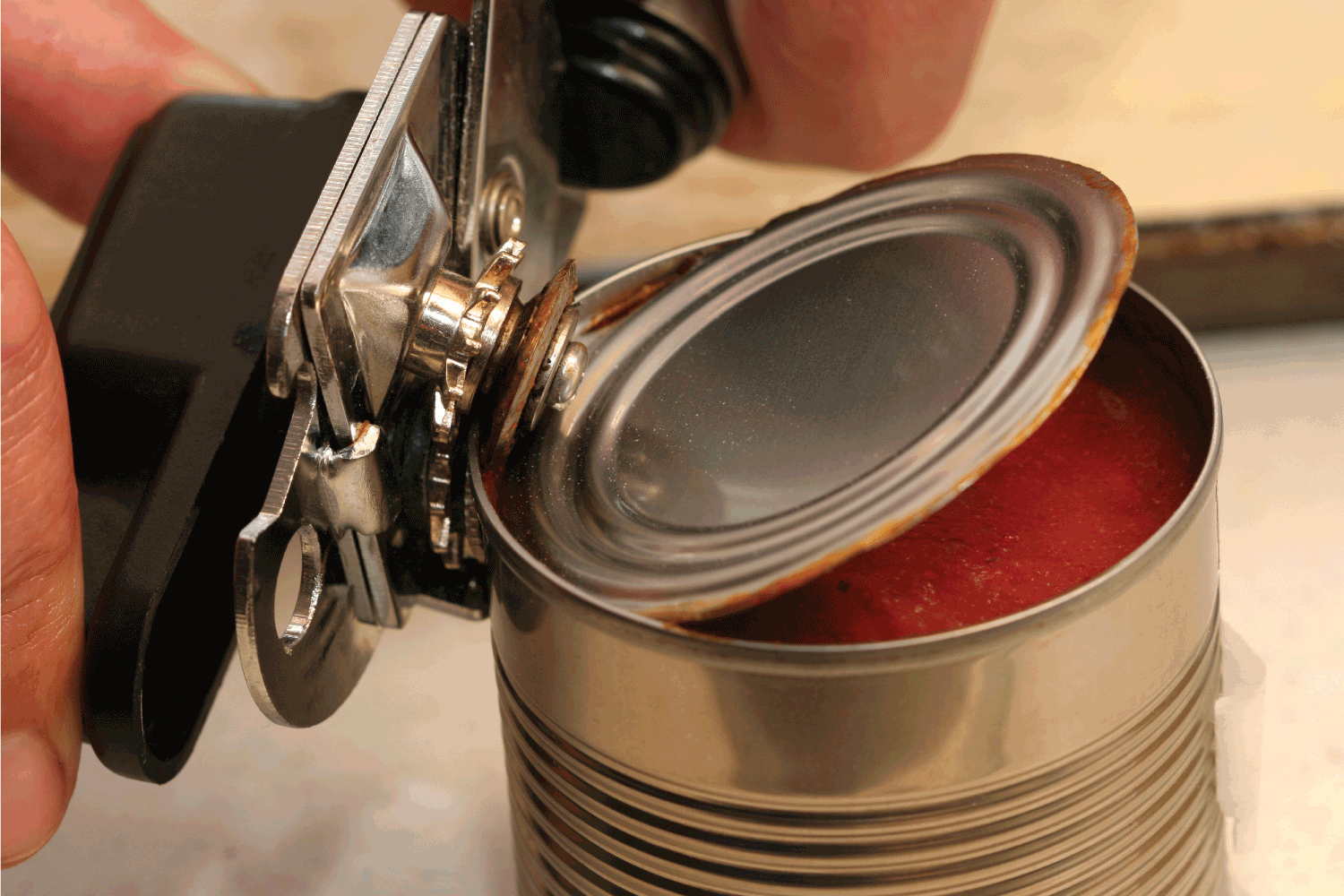
Rust is the result of a chemical reaction of iron and oxygen in the presence of moisture. Over time, this will weaken the metal, causing discoloration and flaking. Rust not only degrades the device but puts you at risk of getting the flakes in your food.
As far as can openers are concerned, the moisture culprit is either water from cleaning or liquid from foods. That being said, if you wish to prevent rust, you must keep your opener both clean and dry. This is extremely important to keep in mind. Using a hairdryer is extremely effective in eliminating that hard-to-reach water in the gears. And as previously mentioned, don't toss it in the dishwasher unless specifically told it's dishwasher-safe.
Another way to lower the risk of rust issues is to look for openers made from certain materials. Certain types of chrome and stainless steel are highly resistant to rusting. That doesn't mean they're incapable- only less likely to succumb. You still need to maintain them properly as far as cleaning and maintenance.
In the end, the most vital takeaway is to be sure your can openers are always kept dry!
To summarize
Wow, we've covered a lot in this post! We established that most can openers will last at least three years but are capable of much longer if well-cared for. We also offered recommendations on cleaning, sharpening, and lubricating. Use your devices according to specifications, avoid extensive moisture exposure, and buy good quality. To help avoid rust, keep them sanitized and completely dry. Stay away from those dishwashers!
Kitchen Appliances Gift Ideas [2020 Edition]
15+ Kitchen Utensil Gift Sets For Cooking Lovers




![Process-of-opening-the-can.-What-Are-The-Best-Can-Openers-For-Seniors-[6-Can-Openers-To-Consider]](https://kitchenseer.com/wp-content/uploads/2021/05/Process-of-opening-the-can.-What-Are-The-Best-Can-Openers-For-Seniors-6-Can-Openers-To-Consider-250x250.png)
![Electric can opener on a canned food, How To Use A Kitchen Mama Can Opener [Quickly & Easily]](https://kitchenseer.com/wp-content/uploads/2022/10/Electric-can-opener-and-canned-good-250x250.jpg)
